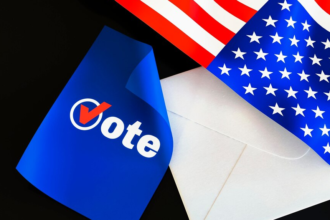Cases involving improper deportation have attracted more and more attention recently since they expose major faults in the American immigration system. These incidents raise urgent questions regarding the equity of deportation policies and the protections in place to guarantee that immigrant rights are not infringed. Although immigration reform still divides American politics, these incidents highlight the need to build a more open, fair, and responsible system.
One instance that has drawn a lot of media coverage is that of Salvadoran national Kilmar Ábrego García, who was deported to El Salvador despite possessing legal protections meant to stop his deportation. García was deported in March 2023 under what U.S. officials have admitted to be an administrative mistake. This episode has spurred heated discussion on how such errors arise and how best to stop them going forward.
The case of Ábrego García is a prime illustration of how erroneous deportation proceedings can affect not only the lives of the people engaged but also question American immigration laws generally. It emphasises the need for a review of present practices, responsibility policies, and the wider consequences of such errors on diplomacy and world relations.
What repercussions follow from cases of wrongful deportation?
Cases involving improper deportation have effects much beyond the lives of the immediately affected people. A wrongly deported person generally experiences emotional turmoil, familial separation, and perhaps physical risk. Deportation can cause major psychological, financial, and emotional losses for immigrants who have developed lives in the United States following years of employment and residence.
Furthermore, cases involving erroneous deportation cause legal unrest that could result in protracted court battles costing time and money for the U.S. government as well as the impacted people. Many times, people deported under erroneous conditions could find it difficult to legally re-enter the United States. This complicates their life unnecessarily, particularly in cases when their deportation was based on false or insufficient information.
Furthermore, these incidents can damage the reputation of American immigration enforcement departments. Public awareness of situations involving erroneous deportation begs questions regarding system accuracy and openness. Advocacy groups and citizens could start to wonder if the deportation procedure is being carried out fairly and with reasonable care. The effective operation of the system depends much on public confidence in immigration authorities. Cases of wrongful expulsion erode that trust, therefore compromising the integrity of the immigration system.
Why does wrongful deportation occur?
Cases involving wrongful deportation can arise for a variety of reasons, most usually resulting from administrative mistakes, misinterpretation, or due process breakdowns. For instance, Kilmar Ábrego García’s deportation happened despite a 2019 court decision affording his legal defence from deportation. The erroneous removal followed from the U.S. government’s partial respect of the court’s ruling.
Using erroneous data is one of the most common factors behind wrongful deportation cases. Though these databases are not constantly updated in real-time, the U.S. government mostly depends on them to monitor immigrant legal statuses. For instance, this information could not always be recorded in the system if someone receives asylum or has outstanding legal procedures meant to stop deportation. Furthermore, contributing to unlawful deportations is a human mistake in immigration case review.
The complexity of immigration legislation is still another important influence. Particularly for non-native speakers or those without legal counsel, the United States’ notoriously complex immigration system consists of several paperwork, processes, and legal criteria that might be perplexing. Errors often result from inadequate knowledge of the law by government officials and immigrants alike or from poor communication.
How could cases of wrongful deportation be avoided?
The U.S. government has to implement changes guaranteeing more accuracy and openness in deportation processes if it is to handle the growing number of incorrect deportation cases. Implementing more stringent protections before deportation orders are decided on is a crucial first step. Immigration courts, for instance, should have a more extensive review process to guarantee that when a deportation judgment is rendered, all pertinent evidence is taken into account.
Furthermore, it is important that the correspondence between immigration enforcement authorities and the courts. Cases involving wrongful deportation usually arise from court decisions or grants of protection, but the information is not adequately shared with the institutions in charge of deportation execution. Enhanced cooperation among judges, the Department of Homeland Security (DHS), and immigration enforcement authorities would help to reduce mistakes.
Furthermore, the deportation procedure has to be more open. Immigrants should have easy access to details on their legal situation and any current legal actions. Establishing more easily available lines of communication, such as a public database where people may monitor the status of their cases, helps one to do this. This will empower immigrants as well as provide them with chances to contest erroneous deportation cases before they start.
Improved control is one of the main strategies to stop cases of erroneous deportation. Establishing impartial entities or institutions charged with tracking deportations would help to guarantee adherence to court rulings, international human rights standards, and U.S. law. Before deportations start, these supervising agencies could look at allegations and fix mistakes.
The Legal and diplomatic consequences of cases of wrongful deportation
Cases involving wrongful deportation also have diplomatic ramifications. Particularly if that person encounters danger or persecution upon arrival, improper deportation of people to their native nations can strain relations between the United States and the country involved. For Kilmar Ábrego García, for instance, Salvadoran officials were caught in the middle of a political conflict while the U.S. pursued his return. These diplomatic conflicts not only impact the individual engaged but also complicate more general American-international ties.
Moreover, situations involving unlawful deportation can compromise worldwide initiatives to enhance immigration laws and international collaboration. Cooperation among many nations is addressing problems, including refugee resettlement, human trafficking, and asylum seekers. But when deportation policies are arbitrary or faulty, it calls into question America’s dedication to these global objectives.
How might American immigration laws change to handle cases involving wrongful deportation?
Policymakers are asking for a review and change of U.S. immigration laws and practices more and more as examples of unfair deportation grab attention. U.S. immigration policy must go on in balance between the protection of human rights and the execution of immigration rules. The answer is thorough reform that enhances system transparency, justice, and efficiency.
Reform of immigration has to guarantee not only border security but also lawful and due process execution of deportation policies. Ensuring that everyone has a fair hearing before deportation, for example, might help to lower the volume of erroneous deportation cases. More resources for legal counsel, better case management systems, and more responsibility and control in the deportation process will help to reach this.
In essence, Reform of American Deportation Policies: Their Need
Cases involving wrongful deportation draw attention to structural problems with American immigration rules. They are a pressing matter. Like situations like Kilmar Ábrego García’s indicate, mistakes in the deportation procedure could have far-reaching effects. Policymakers have to concentrate on changing the U.S. immigration system to avoid future wrongful deportation cases so that the public may trust it and guarantee fairness.
The U.S. may build a more fair and effective immigration system by means of better coordination between agencies, enhancement of monitoring, and guarantee of more transparency. Maintaining the integrity of American immigration laws and safeguarding immigrant rights depend on these improvements.








